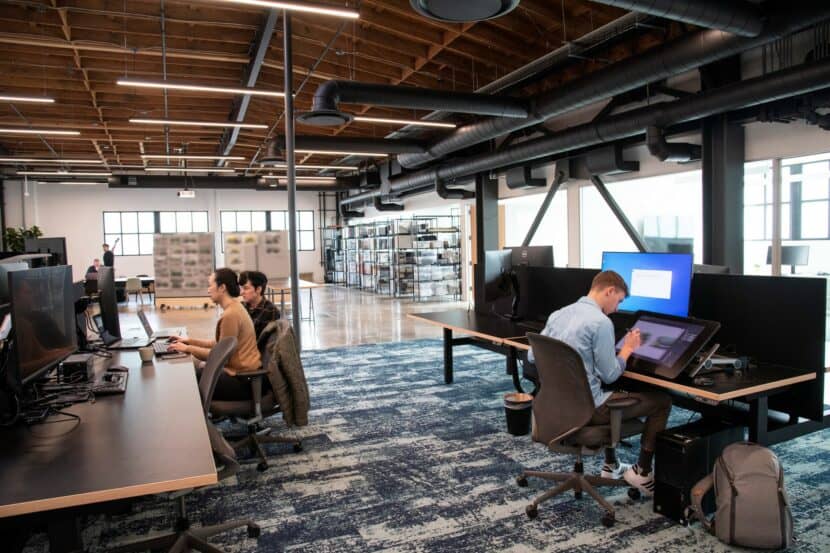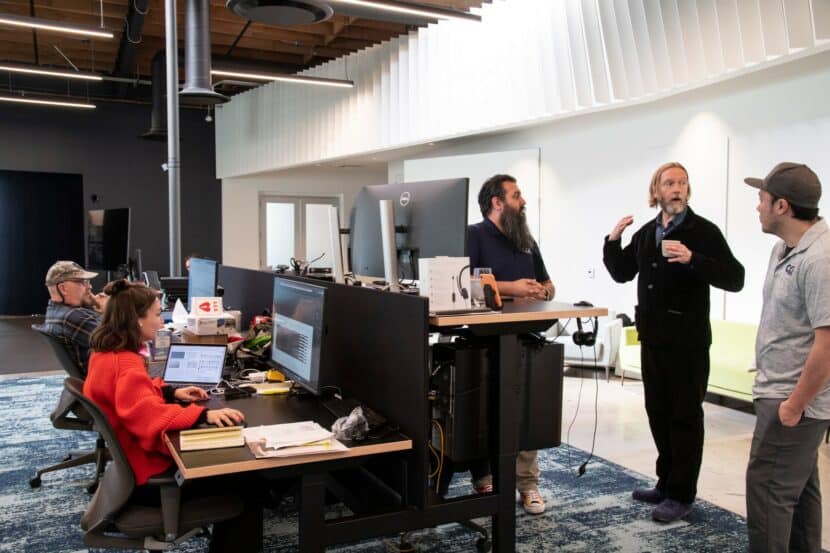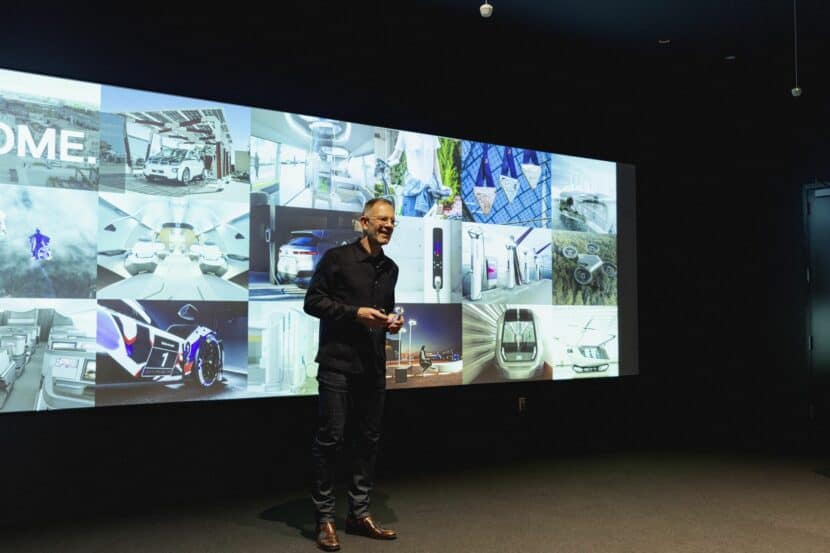Sitting down with Holger Hampf, President of BMW Designworks, and Adrian van Hooydonk, Design Director with BMW, we got some new insight into how things work over at Designworks. The design studio, the “architects of the future,” just opened a new facility in Santa Monica, California. Appropriately, the new studio’s opening coincided with Frieze Los Angeles, an art fair in Los Angeles. Here are some takeaways from our chat with Van Hooydonk and Hampf about some key Designworks points. Notably included are art cars, the importance of collaboration, and why you can’t blame just one person for how new BMWs look.
Global Appeal
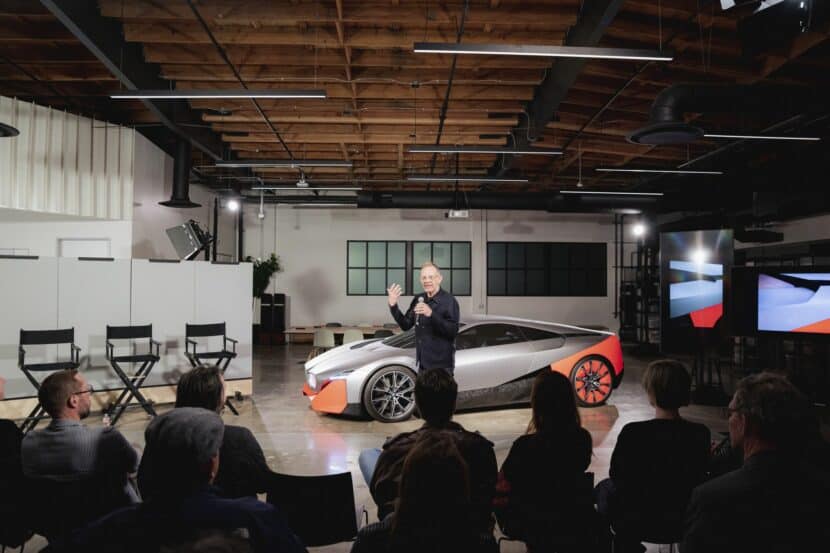
When asked about the difference in design aesthetics between Europe, the US, and China, the answer was surprising. van Hooydonk – careful not to generalize – suggests the world’s tastes are converging rather than growing apart. Though the Chinese market used to favor more extravagant designs, “it’s become quite refined,” he comments. The biggest difference comes from the American influence, in fact. “To an American customer, BMW is a sporty vehicle. No matter how big it is, even a 7 Series is seen as a sporty car. In China, BMW is seen as a luxury object.”
Bridging the design language barrier is the luxury that BMW offers. “There’s not one formula anymore,” he says. “Maybe thirty years ago, if you had reached a certain level of success in life, you wanted to belong to that luxury segment. But I think people today don’t care about that so much,” he says. “Especially if you’ve become successful in your own right. You want to get your own luxury or rewards. It’s become far more individual.”
That’s why the new 7 Series walks a balance between the two. It offers both an aggressive look, thanks to a myriad of M Sport goodies and exotic paint selections, and a more refined feel, with luxurious options like cashmere seating surfaces and inoffensive exterior paints like Oxide Grey.
Designing a New Workspace and Changes Through COVID-19
“Last year’s COVD restrictions, even I learned a lot, in terms of how to use different tools,” van Hooydonk begins. “We used to have big design reviews, big screens, somebody presenting the computer model,” he continues. Now – like much of the world – it’s all done online. Now, it’s as easy as the BMW design boss simply drawing on a screenshot of the computer model to suggest edits and changes. “That’s sped up tremendously – whether we like it or not,” he finishes.
Continuing Art Car Legacy
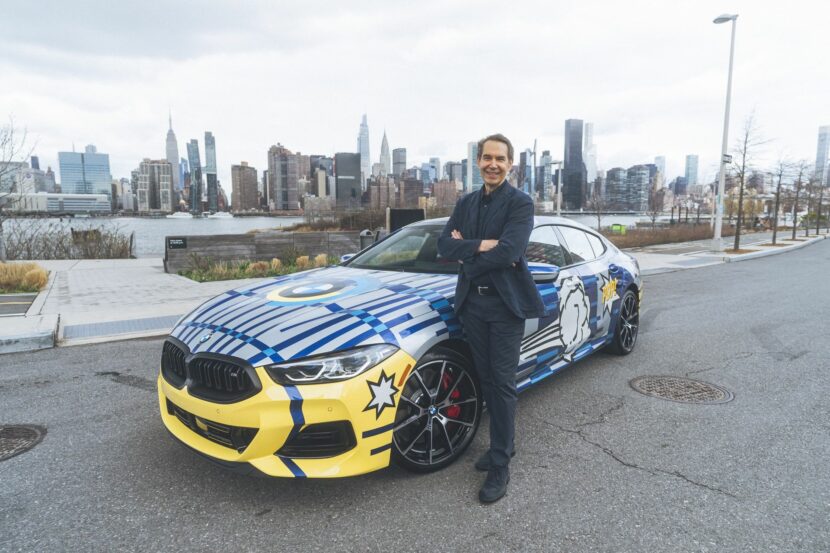
“The Art Car series is continuing – but we’re not doing one each year,” van Hooydonk states. “There’s a project in progress right now. I think later this year, we will communicate with which artists we’re doing that. Always interesting and inspiring.” BMW’s connections and brand cachet offer opportunities to work with renowned artists worldwide. In addition, it paves the way for unique special editions – ranging from The 8 x Jeff Koons 8 Series to the unique Radiant Cadenza Immaculate Edition 7 Series.
Speaking of Jeff Koons, he seems to be a big fan of his relationship with the brand. “He wants to actually do more cars than we dare to,” van Hooydonk said. But it’s a delicate balance. “When we do a design, we show it to our sales colleagues, three years ahead of time. Then they have to guess or gauge the volume, they have to then make a statement or commitment. How many do they think they can sell?” It doesn’t take an expert to see why you wouldn’t want too many super-exclusive works of art sitting around on dealership floors. Bridging the gap between what is art and what’s a car is – understandably – tough.
It’s a Team Effort
BMW chooses to move in an increasingly polarizing direction with its exterior designs. Though it is most recently evident in vehicles like the M3 and XM, it started way before them. “That we associate an individual with the design of a vehicle, you know, that was the past, some twenty years ago,” Hampf says. “Today, it’s purely seen as a team effort,” he continues, “it’s working quite well. We have one signature, and that says BMW design or MINI design, and that’s it. People have not only accepted it, but they actually embrace it nowadays.”
Apparently, all three Designworks studios – Europe, China, and the United States – are highly collaborative operations. Remember that next time you want to curse Domagoj Dukec.
Designworks – Selling For the Future
Tying into the idea of a global appeal and personalized luxury, van Hoodonk had choice parting words regarding Designworks going forward. “A lot of our customers are interested in design and art. But then it gets even more personal, as someone really loves certain artists really don’t like others,” he notes. It means some customers – despite loving art – might not necessarily fall in love with a specific design.
There’s a remedy for that.
“In the future, we become more flexible in the design of the exterior and the interior. Or even change the color of the exterior, let’s say like we showed at the Consumer Electronics Show, then maybe a car can become a complete canvas. And people can express their own tastes or preferences through to all of that and it could go to art as well. Technologically, there is still some things to figure out before we get there.”
“Look at DEE, this car introduced at CES. We took away many, many features that you usually find on cars,” Hampf chimes in. He says the car remains unmistakably BMW – but becomes a customizable canvas. “It’s clean, and it’s a fresh start, it almost kind of can now take personality.” Here’s hoping for more impressive cars – with more personality than ever – in the future of the Designworks portfolio.

